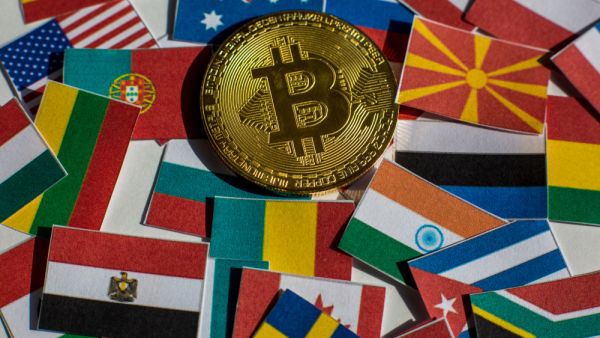As crypto continues to disturb the world just like the internet once did, some countries were the "early adopters" when it comes to crypto adoption, while others are still looking into how to regulate this space.
One of the wildest stories in the crypto world last year involves El Salvador endorsing BTC as legal tender, a decision that was faced with scrutiny from legislators reinvigorating the debate and criticism about crypto adoption again.
According to a report by crypto.com, the number of people owning cryptocurrencies in the world has doubled this year, to almost 220 million. As investors pumped $30 billion into the crypto projects in 2021, more than in all prior years combined. The Library of Congress (LOC) conducted periodic reviews of countries' positions on Bitcoin and cryptocurrencies in November 2021. The study found that 103 countries are currently developing regulations regarding cryptocurrencies and their use in AML/CFT, with some considering adopting the first truly digital currency.
With no further ado, let’s get to know the top 5 countries in crypto adoption.
Top Five Countries in Crypto Adoption
-
El Salvador
El Salvador made history in September 2021 when it became the first government to make bitcoin a legal currency, the third to buy bitcoin as a nation, and the first to airdrop bitcoin to residents.
The crypto haven has announced the launch of a new "bitcoin" city, which would be funded entirely by $1 billion in Bitcoin bonds. While neighboring countries raise VAT, El Salvador's President, Nayib Bukele, a youthful crypto champion, recently revealed his desire to construct a "Bitcoin City" based on bitcoin-backed bonds with no taxes.
- UAE
UAE, which is well-known for its quick legal modernization, is now working on adopting new legal frameworks and laws that will lay the groundwork for it to become the world's largest hub for crypto and blockchain technology. In 2015, UAE became the home of the first crypto exchange in the gulf. Thanks to a series of crypto events it sponsored, progressive government initiatives, and an accommodating business climate, the tourist hub of the UAE became the Silicon Valley of the crypto industry and the home for the new 151 crypto startup in 2021.
In collaboration with CV Labs and other premier crypto enterprises and exchanges, DMCC recently developed its own crypto centre. The DMCC Crypto Centre, which is housed in Almas Tower, aims to become a hub for companies working on blockchain-enabled trading platforms, as well as companies that offer, issue, list, and trade crypto assets.
- Malta
Since becoming the first and only country to create an organized framework for cryptocurrency use in 2018, Malta has always had an open door policy toward bitcoin and other cryptocurrencies. Since then, the Mediterranean archipelago has emerged as a global crypto hub and forerunner, welcoming crypto enterprises and exchanges. According to Chainalysis, Malta will be the next country to recognize bitcoin as a legal tender.
- Bahrain
The Kingdom of Bahrain was one of the first jurisdictions to ever regulate crypto and blockchain firms, with Rain crypto exchange and CoinMENA crypto exchange fully regulated there. Also, earlier this year, The Central Bank of Bahrain has announced the completion of a test of the JPM Coin with Onyx by J.P. Morgan. In the test, the JPM coin enabled Bank ABC to launch real-time payment for Aluminium Bahrain (ALBA) to benefit ALBA's counterparties in the United States.
The JPM Coin is a permissioned blockchain system that serves as a payment rail and deposit account ledger, allowing participating entities to transfer US Dollars held on deposit with J.P. Morgan.
- India
India is thought to have a crypto user base of over 7.3 million people and a trade volume of around $21.8 billion dollars. People from smaller Indian cities have begun to participate in the cryptocurrency market. The steep rise in bitcoin prices was a crucial factor in India's growing interest in cryptocurrencies.
Earlier this month, The Reserve Bank of India (RBI) announced intentions to launch the Central Bank Digital Currency (CBDC), a digital version of the rupee, in 2022-2023.economy.
India's warming up to cryptocurrencies could result in a very good sentiment boost for the crypto sphere and this regulation clarity could even hinder the use of such currencies in criminal activities.










